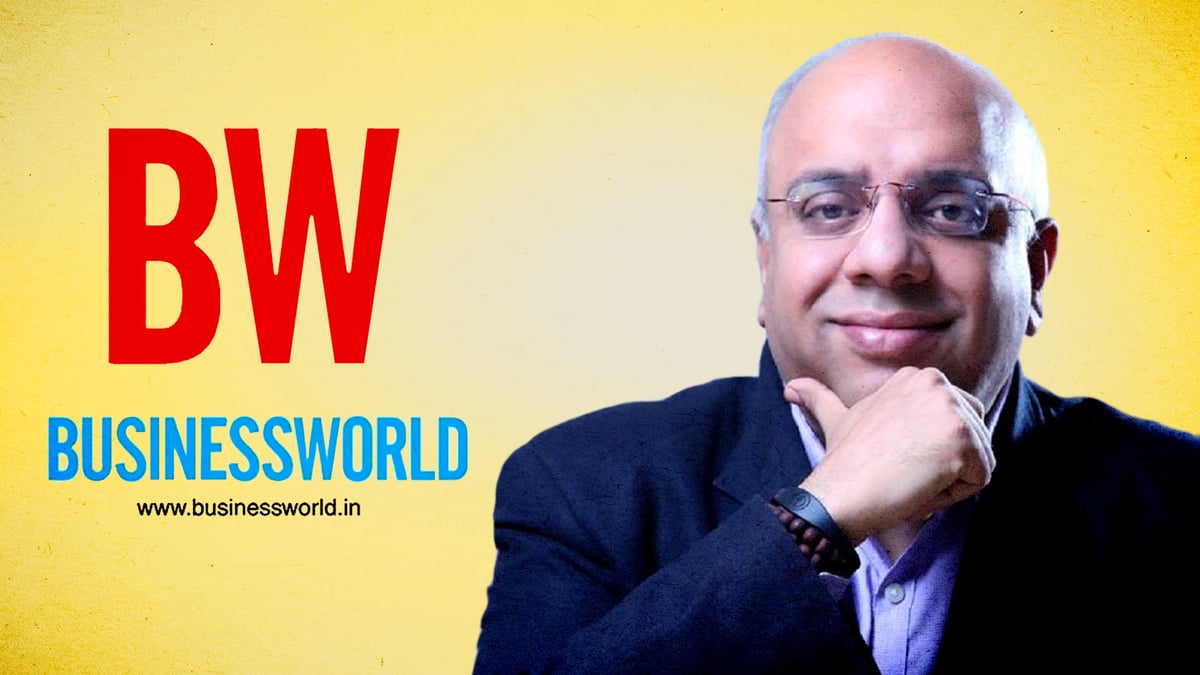As BW business world is wrapping up four decades of its existence this year, as unpaid salaries, delays in supplier payments, lawsuits, shrinking advertising revenue and a lack of corporate events have brought the magazine to the brink of collapse. The somber mood surrounding the business publication is illustrated when management recently served defamation notices to a former employee and some Twitter users for sharing a screenshot of a LinkedIn interaction with Anurag Batra, its chairman and editor-in-chief.
“Some journalists to whom I owe nothing have unleashed a malicious campaign against me. They are slanderous and motivated,” Batra said newspaper laundry.
He acknowledged that the past few years have been tough: “I’ve struggled to raise funds.” The magazine, he said, was facing a cash crisis. “I’m in the process of fundraising right now,” he added. “My plan is to settle all payment obligations in 90-100 days.”
The Kapoor family, famous for Yes Bank, which owns over 60 percent of the company, wants out, Batra said. “There have been ongoing discussions about the possibility of bringing in a new investor as the existing investor wants to scale back its various investments for internal reasons.”
He and Kapoor’s family office collectively own over 99 percent of the shares in the media company that operates the magazine.
The takeover
In 2013 when the ABP group laid SW business world on the block, There were no immediate buyers. The Kolkata-based media company, owner of the telegraph and Anandabazar PatrikaShe had made losses and decided to outsource the publication and concentrate on that wealtha magazine published in India in 2010 in a licensed partnership with Time Inc.
India’s GDP growth, suffering from a global economic crisis, had fallen to 5 percent in 2012-13. Most media houses were on the brink of crisis, hit hard by sluggish industrial growth and falling advertising revenues.
Then-editor Prosenjit Datta stared at the prospect of an impending closure and quickly stitched up a business plan. started in 1981, SW business world, the only weekly newspaper in India, had built up a loyal readership with a circulation of over 60,000 copies. Shortly before the sale, the ABP group had turned it into a two-week deal.
Datta’s plan was to use the magazine’s reputation and raise around 30 million rupees from investors to make it profitable. For ABP, the magazine’s tight profit or loss margins didn’t make much of a difference in a good year, but did matter when the group suffered a loss. Some people at SW had even accused ABP of neglecting the magazine: the group never treated it as a separate business unit, nor did it have an independent space sales team.
Datta’s proposal appealed to some investors, but time was running out.
In early September 2013, promoter and editor-in-chief Aveek invited Sarkar Datta to lunch. He told him that he had found a buyer for it SW in Anurag Batra, first-generation media entrepreneur, journalist and eternal optimist rolled into one, as his LinkedIn profile explains. Batra was then known as the owner Exchange4Mediaa platform for information about the advertising and marketing industry.
The deal, the contours of which are still under wraps, was priced at around Rs 8 crore. It consisted of three components – an upfront payment, a monthly fee paid to ABP for holding the handset BWs Marketing functions, a leasehold to operate from the same location leased by ABP.
The magazine operated from two floors of the Express Building in Delhi’s Bahadur Shah Zafar Marg. Apart from a fairly large reporter team in Mumbai and reporters in a few other cities, BWs Production, design, desk and photo departments were all located in Delhi, with 50 employees working in different editorial offices.
An old friend of Batra’s, Vikram Jhunjhunwala, who ran a boutique investment banking and wealth management firm called Shrine Capital, helped him close the deal. Jhunjhunwala was offered a share of about 1 percent as sweat capital. Similarly, Amit Kapoor, a faculty member from leading business schools who established the Institute for Competitiveness, also received shares in the company.
A statement released on September 19, 2013 said ABP had sold the magazine to Batra and Jhunjhunwala for an undisclosed amount, giving the impression that Jhunjhunwala had funded the deal along with Batra. In fact, Batra had taken out a loan from a Mumbai-based media tycoon to complete the deal.
The acquisition surprised many people in the Mumbai office.
On his first visit to the Mumbai office, Batra spoke briefly with the senior editorial staff, who were standing by the bay. “I’m going to redesign the magazine. We will use and create a bouquet of products,” he assured them.
There was an exuberant atmosphere in the editorial office.
But within a few months, the new owner, GBN Media, later renamed Businessworld Media, was caught in a financial crisis. Employee salaries, credited by the last day of the month, were delayed by a week, sparking grumblings in the office.
An apologetic Batra offered to advance employees faced with EMI payments.
Efforts were made to achieve a quick turnaround, but they proved futile. So Batra cut staff to cut costs.
A former employee said: “Like many other magazines in those days, Batra introduced the concept of sponsored content to increase revenue”.

